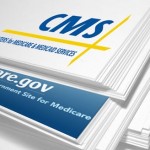 In April 2015, huge bipartisan majorities passed a milestone Medicare reform bill called MACRA, which imported all the worst elements of Obamacare into Medicare. At the time, I wrote an alternative proposal, and anticipated physicians would refuse to swallow the medicine MACRA prescribed. Congress passed the flawed MACRA bill, and President Obama gave a speech describing how “this legislation builds on the Affordable Care Act.” Remarkably, Republican politicians who assert they want to “repeal and replace Obamacare” have still not recanted their support of MACRA.
In April 2015, huge bipartisan majorities passed a milestone Medicare reform bill called MACRA, which imported all the worst elements of Obamacare into Medicare. At the time, I wrote an alternative proposal, and anticipated physicians would refuse to swallow the medicine MACRA prescribed. Congress passed the flawed MACRA bill, and President Obama gave a speech describing how “this legislation builds on the Affordable Care Act.” Remarkably, Republican politicians who assert they want to “repeal and replace Obamacare” have still not recanted their support of MACRA.
The gist of MACRA is that Medicare will no longer pay for “volume” but “value” in a zero-sum game wherein physicians who do not satisfy the government’s requirements for “value” transfer income to those who do. Since the bill was signed, the details have percolated from the elite physician executives who run the medical societies which lobbied for the bill down to practicing physicians. There has been pushback.
Nervous that physicians will bail out of Medicare if the government squeezes them too hard, the Administration has backtracked on MACRA’s sticks and shifted towards carrots. Last April, the Administration published a proposed rule, 426 pages long. After a lengthy comment period, the final rule, which is 2,205 pages long (!), was published on October 14.
Read More » »
 Many people believe Obamacare was a conspiracy, with asinine design features intended to cause the program to fail. The primary goal in the minds of conspiracy buffs’ was to usher in a single-payer program of Medicare for All once Obamacare collapsed under adverse selection. The theory goes something like this: with nowhere to turn except the government, Americans would finally throw up their hands and acquiesce to government intervention. Seniors purportedly all love their Medicare, so why not expand the program to cover even more people?
Many people believe Obamacare was a conspiracy, with asinine design features intended to cause the program to fail. The primary goal in the minds of conspiracy buffs’ was to usher in a single-payer program of Medicare for All once Obamacare collapsed under adverse selection. The theory goes something like this: with nowhere to turn except the government, Americans would finally throw up their hands and acquiesce to government intervention. Seniors purportedly all love their Medicare, so why not expand the program to cover even more people?







